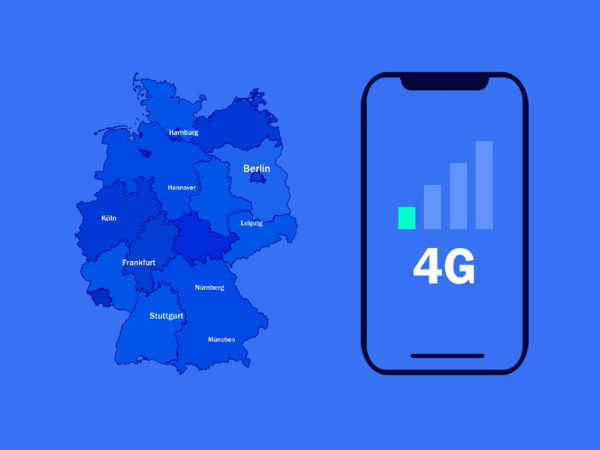The world's wealth is measured the wrong way
Until now, gross domestic product (GDP) has been the main measure for comparing the well-being of countries. Many consider this to be inadequate. The volume of goods a country produces does not reflect how its citizens really feel, critics say. “What we measure determines what we do,” says Joseph Stiglitz, winner of the Nobel Prize for Economics in 2018, who belongs to a group of experts at the Organisation for Economic Cooperation and Development (OECD) developing alternative methods for measuring the well-being of countries. GDP, many researchers now believe, holds far too much political sway.
Current global trends, such as the rise of populism or the urgency of tackling climate change, have sparked a debate about the usefulness of GDP for measuring general well-being. How can it be, many asked after the election of Donald Trump in 2016, that there is so much discontent in the United States, the country with the highest GDP in the world? Its economy is growing, they point out. Others look at expanding emissions and the difficulty of tackling climate change and ask if our devotion to GDP is hindering ecologically sustainable economic policies. Have we have forgotten the resources of our planet are limited?
Economists Katharina Lima de Miranda and Dennis Snower are proposing a new method for measuring well-being. They want to more accurately understand the quality of life in a particular country. Lima de Miranda is a researcher at the Kiel Institute for the World Economy. Dennis Snower is a professor at the Hertie School in Berlin and president of the Global Solutions Initiative. The two are developing an approach that combines four different indexes: economic growth, solidarity, environmental sustainability and “agency”, a way to measure the possibilities for citizens to take control of their own lives. Together, these form a “dashboard,” similar to the dashboard of an airplane. The idea is to show whether a country’s economic engine is running smoothly, or whether it is about to cut out.
The researchers explicitly point out that these four dimensions together cannot fully represent the complexity of life in a country. It is, for example, difficult to assess how much importance people give to their income versus their social well-being ¬– this has a lot to do with their own personal experiences and culture. But in combination, the four indexes aim to lay the foundation for better describing the quality of life in a country.
Four dimensions for a better life
The first dimension is GDP per capita. Roughly speaking, it measures the value of the average goods or services produced per citizen in a country. A second new index is intended to show the scope people have for participating in and shaping their life in their country. This “Agency Index” takes into account, for example, how many years of education people enjoy on average, how threatened they are by unemployment, how high their life expectancy is and how much trust they have in government. The third indicator aims to measure solidarity. To do this, data from long-term surveys are combined to determine the level of trust among citizens and their willingness to help outsiders. It also looks at how many people have family and friends to help out when they are in need. The fourth dimension, the “Environmental Performance Index,” describes the environmental health of a country.
Interactive map
On the interactive world map, one can explore how well each of the 35 countries performs in the four categories. By clicking on a country, the user can see the extent to which it has improved or deteriorated over the past ten years in each of the four dimensions. The various indicators in the interactive map show fascinating differences between countries. While for Germany, for example, both GDP and the values for agency and solidarity have increased, these values for countries such as the US and the UK have become increasingly divergent.
Where this gap is larger, Dennis Snower speaks of a “decoupling.” In his view, there is not necessarily a causal link between the strong growth of the economy and the decline in solidarity. But for Snower such gaps are a sign of political failure.
“This dissatisfaction, which can be felt in political movements or in extremism, which is growing stronger in many countries, cannot be explained by GDP,” Snower says in an interview with the Tagesspiegel. For example in the US: “Here, GDP has grown nicely. Not much has changed in the area of ‘agency’, while ‘environment’ has improved somewhat, but the category of ‘solidarity’ is seeing a total collapse.”
According to Snower, the US has long been focused solely on GDP, while “it has been blind” to other issues. Other countries are in a similar situation. Snower argues that solidarity, agency and a healthy environment are basic human needs just like material well-being – and should be given greater consideration. They are more important than economic inequality, which is often used to explain extremism and populism. Indexes that measure economic inequality, such as the Gini index, which measures the (in)equality of income distribution, are therefore not included.
Comparing Germany, China and Greece
But the comparison of different countries shows even more. For example, the economy in Germany has grown over the last ten years, and solidarity has also increased slightly. In Greece GDP per capita has fallen sharply, mainly due to the economic crisis. Agency has suffered, solidarity has not. In China GDP per capita has risen dramatically but is still far below the international average. Social cohesion (solidarity) has also increased significantly. Opportunities to take one’s life into one’s own hands (agency) has also increased in China. In terms of sustainability, on the other hand, China scores very poorly by international standards.
Is this really new?
GDP was developed by the American economist Simon Kuznets in 1937. At that time, after the Great Depression, people wanted a standard method for comparing how one country was performing over others.
But already in 1968 Robert F. Kennedy said in a speech that GDP “…measures everything, in short, except that which makes life worthwhile.” Particularly since the end of the financial crisis in 2008, numerous experts have been calling for an alternative to GDP that includes other factors. The OECD published the “Better Life Index” with eleven categories, on which a high-ranking commission had worked for over ten years. The German Federal Environment Agency developed the “National Welfare Index”, which combines 20 indicators. In addition, there are catchily named measurement concepts such as the “Human Development Index,” “Gross Happiness Product,” “Ecological Footprint” or “Genuine Progress Indicator.” There is a “Green GDP,” and an “Index of Sustainable Economic Welfare.” There is even a “Happy Life Years Index.”
So the debate is not new. Dennis Snower is critical of what is ultimately an individualistic approach of all these indexes. Many of them extrapolate the “degree of happiness” of individuals to all of society. Instead, Snower would like to measure the glue that holds society together, taking a closer look at the relationships between people.
Claus Michelsen, head of the department of economic policy at the German Institute for Economic Research, says that many of the previous indexes have failed because they very selectively added additional aspects of well-being. Or they allowed for a very comprehensive analysis, but this was difficult to standardize or collect data for on a continuous basis.
Is the Recoupling Dashboard really a help?
“The Recoupling Dashboard is interesting because it attempts to provide a more comprehensive measurement of well-being based on existing statistics,” Michelsen says.
The Recoupling Dashboard is more complex, and more complicated than GDP. While Dennis Snower offers a theoretical framework for choosing these four dimensions – measuring cohesion, not just the aggregated happiness of individuals – the selection and weighting of the underlying data sets seems somewhat arbitrary, as does their formation of two new “meta-indexes” on opportunity and solidarity, which Snower has created.
Claus Michelsen says it is unclear how much weight the individual components should be given to form a measure of well-being. “Ultimately, this is a problem that arises in all multidimensional attempts to measure prosperity: For example, how important is it for a society to live in a clean environment? How important is a high income?” Michelsen says.
However, Snower’s study explicitly points out that there remains much need for clarification in weighting the factors in relation to one another. The data also comes from a wide variety of sources: the World Bank, the OECD, and survey institutes or banks. Whether it is justified to place them on equal footing with each other is worth discussing. This is especially complicated because many of the terms and figures are politically and culturally contested. Those who have the power to count also have the power to determine what counts.
Can the new index prevail?
“I think it is quite unlikely this index will establish itself, at least in the short term,” says Michelsen. Not surprisingly, Dennis Snower believes his index has a better chance. “Injustice is increasingly an issue,” says the economist. But digitalization, globalization and automation have also led to an ever-greater decoupling of the economy and quality of life. “People feel socially left behind,” he says, “without support in society.” That creates a lot of pressure.
“The debate about participation, inequality and protectionism is a good opportunity to think about it,” says Michelsen. With a new index, policymakers would be committed to a host of goals and not just to increasing output. “This could mean, for example, that social participation would no longer be seen as clientelism, but would instead become one of the objectives,” he says.
In fact, there is a growing awareness both in international organizations and in companies that profitability alone is not a sufficient measure of success. In companies, the discussion about economies has been dubbed “beyond GDP.” In many listed companies, the new mantra is “beyond shareholder value” – away from thinking solely in terms of shareholder returns. Until now, Milton Friedman’s approach still held sway in many parts of the economy: The business of business is business. The goal of companies was almost exclusively to maximize profits and increase the value of their business.
Ever since the auto industry’s diesel-cheating scandal, politicians and consumers have been demanding companies pay more attention to the interests of the public. They want business to develop a social conscience, as was recently evidenced in the protests against Siemens and its deliveries to a controversial coal mine in Australia. Many company bosses are now looking at how they can incorporate social values into their corporate management.
But can the complexity of societies really be expressed in figures adequate enough to spawn more sustainable policies than those fixated on pure economic growth? After all, aligning the political will with something measurable is a method that traditionally hails from the business world. This means ways of thinking and methods from this area of life are applied to areas for which their use is questionable. How would one measure loneliness or honesty, for example? Or does such complex arithmetic end up excluding people from the debate who urgently need to participate? For example, those who are truly in need?
It is true that the debate has certainly gained momentum. But it is equally correct that all serious attempts to create a new index that competes with GDP have thus far been unsuccessful.
The Tagesspiegel is cooperating with the Global Solutions Initiative in organizing the annual “Global Solutions Summit” in Berlin, which brings together researchers and policymakers to discuss the issues of the G20. We are publishing the results of the “Recoupling Dashboard” exclusively together with Zeit, Handelsblatt and the Guardian.
Professor Dennis J. Snower is President of the Global Solutions Initiative. At the Hertie School in Berlin he teaches macroeconomics and sustainability. He was previously President of the Kiel Institute for the World Economy.
Katharina Lima de Miranda is a researcher at the Kiel Institute for the World Economy and a visiting professor at the University of Hamburg.


